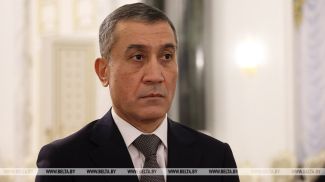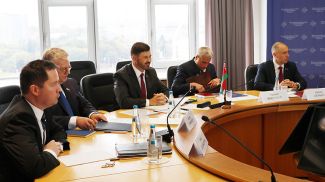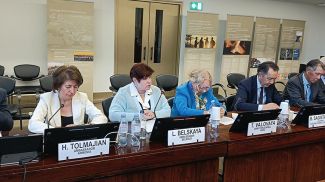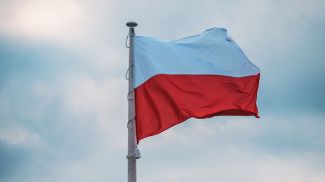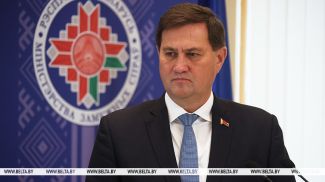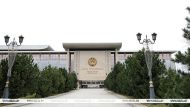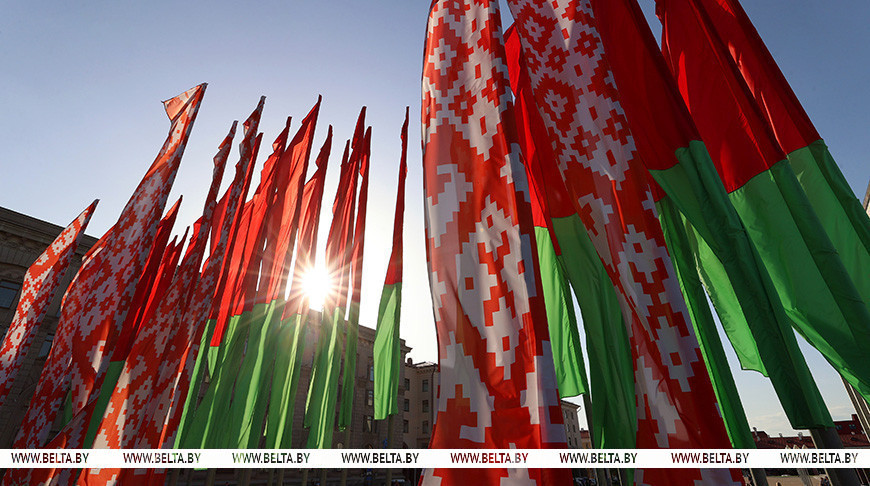
Belarus is a country of opportunities, and Belarusian leader Aleksandr Lukashenko is an architect of stability. New assessments of Minsk’s policy and Belarus’ potential, including for foreign investors, are being voiced by the Western expert community. Some Western analysts have already openly said that there is much to learn from Belarus. Some are cautious, unwilling to drop the narratives of the Western liberal establishment. Indeed, these tropes are old, but still common. At the same time, both of these camps agree that it is in the interests of the West, especially Europe, to reconsider outdated approaches and to try to build bridges instead of blank walls.
Washington is changing its strategy. What about Brussels?
In June, US President’s Special Envoy Keith Kellogg visited Belarus. BelTA extensively covered the visit, Kellogg's meeting with Lukashenko, and assessments given by Western media and think tanks. We will not go back to this topic, we will only note that the very arrival of the American delegation to Minsk stripped European elites of a very convenient cover, or rather, the false thesis about Belarus’ lack of independence and sovereignty, which became the primary justification for the Western establishment’s failed policy towards Belarus. Kellogg’s visit showed that Washington maintains a dialogue with the Belarusian authorities, resolves important issues, reaches an agreement, and if necessary, asks for assistance. And decisions are made here, in Minsk, on our territory.
It is impossible to argue with this. Therefore, Western policymakers will have to adjust their narratives. They will have to either come up with something really new, or radically revise their policy and bring it into line with Washington’s course. This is well understood in the Western expert community. Therefore, they ask: what next?
“Is There a Chance for Re-Engagement Between Belarus and the EU?” – it was the title of an article published by the Carnegie Endowment for International Peace (CEIP) think tank. The author of the publication is Slovak political scientist and former diplomat Balázs Jarábik.
Jarábik had previously commented on Kellogg’s visit to Minsk. In an interview with The New York Times, he noted that Trump’s decision to send his special envoy to Belarus “represents a serious diplomatic upgrade” based on a recognition of Belarus “as a relevant actor in regional diplomacy”. The political scientist also explained why Washington is seeking Minsk’s support in its bid to broker a ceasefire. According to Jarábik, this is due to the fact that the president of Belarus is one of the few leaders who regularly communicate with Russian President Vladimir Putin and at the same time demonstrate a strong interest in de-escalation.
In addition, Jarábik believes that given the escalation in the Middle East, Belarus’ transit potential is gaining importance for the Americans. “Belarus, through which the China–EU railway route passes, is back in the game - not only for the United States or Russia, but also for China’s logistics across Eurasia,” the analyst writes. The political scientist argues that Kellogg’s visit should be viewed more broadly, within the U.S.–Russia–China triangle. “This is a strategic turning point in the emerging competition for Eurasia,” he believes. And in this regard, he wondered what the EU would do next.
The political scientist goes on analyzing relations between Brussels and Minsk. It is worth noting that Jarábik’s article itself is an interesting subject for analysis. In a way, it represents a clash of old and new worldviews, when it is not yet possible to abandon cliches, but it is already difficult to go against common sense.
In essence, Jarábik makes a point in his article that the European Union has locked itself into a normative framework built around its partnerships with the Belarusian opposition. “This institutional alignment provides both moral clarity and bureaucratic comfort, enabling EU officials to assert that their policies serve the Belarusian people. Yet many Belarusians would likely see things differently,” he writes.
Belarus’ internal political landscape has largely stabilized, the columnist admits. The duality that the West tried to enforce in Belarus has failed. “The opposition in exile retains significant influence over Western discourse but has little presence or traction within Belarus. This disconnect highlights a persistent flaw in Western policy: the overestimation of the opposition’s domestic leverage,” the political analyst believes.
Speaking about Belarus’ foreign policy, Jarábik acknowledges Minsk’s desire to build balanced relations and maintain peace in the region. “Lukashenko’s overriding aim remains to avoid direct involvement in the war,” the expert emphasizes. At the same time, despite Kiev’s hostile posture, Minsk has preserved humanitarian and security dialogue, “including support for prisoner exchanges - a rarely acknowledged channel of facilitation,” the article reads.
In addition, the political scientist believes that Belarus is seeking limited re-engagement with the West. But here the stumbling block is the hostile policy of Belarus’ western neighbors - Poland and Lithuania, as well as the inert policy of the EU towards Belarus. “Belarus’ strategic anxieties are heightened by the assertive posture of its Western neighbors,” the expert notes. Thus, Lithuania and Poland continue to support the opposition and oppose interaction with Minsk. “While France and Germany have demonstrated greater flexibility, they have effectively ceded the initiative on Belarus policy to Lithuania and Poland,” writes Jarábik.
But how long will this continue? According to the political scientist, the recent evolution in U.S. policy reflects a broader strategic reassessment. “A recalibrated strategy emerged, driven by the State Department, focusing on stabilization of ties with Minsk instead of democratization of Belarus,” Jarábik writes. According to him, the United States is considering the possibility of resuming air traffic with Belarus and lifting sanctions on Belaruskali.
That said, the political scientist believes that sustainable EU policy on Belarus cannot be built without considering its evolving security posture. “Belarus is no longer a soft flank. The so-called “balcony” has been militarized: tactical nuclear deployments, expanded air defenses, and a more capable army now underscore its deterrent posture,” the article reads. At the same time, Jarábik draws attention to the fact that Minsk has said it will downsize the Zapad 2025 drills and move them away from its western border, signaling a desire to de-escalate,” the political scientist emphasizes.
In addition, Belarus is interesting to the European Union from an economic point of view, Jarábik believes. The country is an important transit hub and a link in Chinese logistics routes. “In the context of the Israel-Iran escalation, China has growing interest in securing and expanding the northern transit corridor through Belarus,” the article notes.
The political scientist believes that interaction between Minsk and Brussels in certain areas, including regional transit or border protection, is not only possible, but also increasingly relevant for both sides. But the European Union must understand that Belarus is ready to build relations based on its interests. “Continuing to treat Belarus as a moral cause rather than a geopolitical challenge risks rendering the EU irrelevant in a region where leverage, not sentiment, will determine outcomes,” he concludes.
Opportunities for success. What makes Belarus attractive?
With his remark about sentiment in Western politics, Jarábik hit the nail on the head whether he wanted it or not. There are no naive people in Western government offices. They should have realized long ago that they miscalculated not only in relation to Belarus, but also to other countries to the east of them. Another thing is that they do not want to admit their mistakes. It is easier for Washington: a new administration brings a new policy. But what should Brussels, Paris or Warsaw do? Admit their incompetence?
But while the West prefers to bury its head in the sand, non-Western countries are actively building relations with Belarus, trying to take their niche. “For those seeking a promising destination for business and investment, Belarus offers a secure and dynamic opportunity for success in the 21st century,” reads the analytical review of the International Institute for Middle-East and Balkan Studies (IFIMES), a think tank based in Ljubljana, Slovenia.
This is the third review of the political and economic situation in Belarus compiled by IFIMES over the past six months. Previously, its analysts drew attention to Minsk's desire to balance relations between the East and the West, studied Belarus’ experience in building relations in the Eurasian region, including within the SCO and along the Minsk-Beijing line. This time, IFIMES explores a strengthening partnership between Belarus and the UAE, the two countries that are building bridges between the East and the West.
“Cooperation between Belarus and the UAE is unlocking new avenues for interregional trade, investment, and infrastructure development, serving as a bridge between the markets of Europe, Asia, and the Middle East. Through joint projects and strategic investments, the two nations are laying the groundwork for lasting economic stability and prosperity,” the analysts point out.
The interest in Belarus from the UAE, as well as from other countries around the world, is understandable. “Its geostrategic location offers substantial potential for economic connectivity between Europe and Eurasia, while a well-developed industrial base and strong innovation capacity make Belarus an attractive partner for foreign investment,” the Slovenian think tank says in its review.
We will not delve into the details of the partnership between Belarus and the UAE. We will only provide excerpts from the review concerning directly Belarus.
The first thing that IFIMES analysts draw attention to is that Belarus today is experiencing notable economic progress and stability, making it an attractive destination for investors and international partners. “With a gross domestic product growth rate of around 4% in 2024, the country shows strong potential for continued development and expanding economic activity. This growth stems from prudent economic policies, a diversified economy, and successful cooperation with strategic partners, including Russia, China, and the Gulf countries,” the review says.
Low inflation and unemployment rates indicate a stable and favourable business environment, IFIMES notes. The government is actively investing in infrastructure modernisation, technological development, and support for innovation, laying the foundations for sustainable and long-term economic growth.
“Belarus is positioning itself as a reliable partner with a clear vision for development and stability, offering a wide range of investment opportunities across industry, energy, the IT sector, and other key areas. One notable investment success story is the Hi-Tech Park in Minsk, which has attracted over 400 international companies and emerged as a regional innovation hub. Industrial clusters in mechanical engineering and pharmaceuticals are also experiencing export growth and technological modernisation,” IFIMES points out.
Legal regulation plays an important role for investors, too. Belarus guarantees legal security of investments and investor protection in line with international standards, including safeguards against expropriation and the option to resolve disputes through international arbitration institutions. “Such legal stability provides foreign companies with additional security and confidence,” the review says.
IFIMES analysts draw attention to free economic zones in Belarus, which offer tax incentives, customs privileges, and simplified procedures for registration and business operations. This framework significantly reduces operational costs and accelerates business development.
The country’s geostrategic position also provides easy access to European, Asian, and Middle Eastern markets, which is an additional advantage for business expansion. “Partnering with Belarus means accessing a rapidly growing and transforming market,” the review says. That said, Belarus is bound by trade agreements with the countries of the Eurasian Economic Union (EAEU) and China. A broad network of trade agreements creates significant opportunities for exports and business expansion.
Taken together, these advantages position Belarus as an ideal destination for investment and the development of new projects. “Over the past decade, Belarus has consistently worked to improve its business environment, develop high-tech sectors, and modernise its infrastructure. Thanks to stable macroeconomic policies, a transparent legal framework, and strong government support, Belarus is positioning itself as a prime destination for foreign direct investment,” IFIMES analysts conclude.
Maintained stability against all odds. How is Lukashenko's role is assessed?
Separately, IFIMES analysts dwell on the policy of President Aleksandr Lukashenko, which positioned Belarus as a prominent player on both the regional and global stage.
“Aleksandr Lukashenko is the undisputed architect of stability and economic development in the Republic of Belarus. Through his long-standing, visionary and resolute policies, he has succeeded in preserving the country’s stability during the most challenging times, leading Belarus towards sustainable economic growth and modernisation,” the think tank notes.
IFIMES draws attention to the pragmatic approach of the Belarusian leader, who relies on traditional values in his policies, but does not abandon innovative methods.





